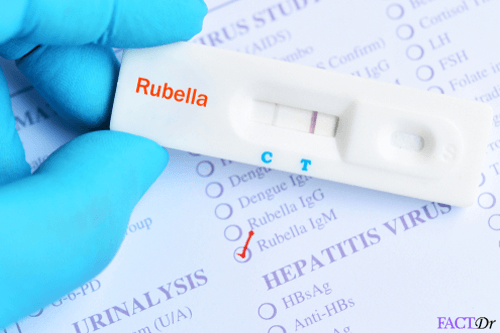Introduction to Rubella IgG
Although German measles, also known as rubella, may appear obsolete, it remains crucial, especially for those considering starting a family. It is a viral infection that spreads easily and is characterized by a red rash. However, when pregnant women get the virus, the true risk is not necessarily to the infected individual but rather to the fetus.
What is the connection between rubella IgG and the subject being discussed? The connection is significant. Immunoglobulin G, or IgG, is a type of antibody that your body produces in reaction to infections. Rubella IgG in the body indicates that you have either been infected in the past or have received a vaccination and are now immune.
The Importance of Rubella IgG Testing
You might be wondering—why even test for this? Well, Rubella IgG testing is a simple blood test that checks whether you’re immune to rubella. It’s especially important for:
Women who are trying to conceive
Healthcare workers
People immigrating to certain countries
Children who may have missed vaccines
Knowing your status helps prevent a world of trouble, especially in pregnancy.
How the Immune System Responds to Rubella
When rubella enters your body, your immune system kicks into high gear. Initially, it produces IgM antibodies, which are the first responders. But they don’t stick around long.
Then comes IgG—the long-term warrior. Once your body makes these antibodies, they usually stick around for life, giving you continued protection from future rubella infections.
Rubella IgG vs Rubella IgM
Let’s clear up the confusion.
Rubella IgM: Shows up first. This indicates the presence of a recent or ongoing infection.
Rubella IgG: Comes later. It signifies a past infection or vaccination, as well as long-term immunity.
So if your IgG is positive and IgM is negative, you’re most likely immune and not currently infected.
Rubella in Pregnancy
Here’s where it gets serious.
If a woman gets rubella while pregnant, especially in the first trimester, it can lead to miscarriage, stillbirth, or Congenital Rubella Syndrome (CRS) in the baby, which can cause:
Deafness
Heart defects
Developmental delays
Vision problems
That’s why doctors usually test women for Rubella IgG before or during early pregnancy.
Rubella IgG Test: What to Expect
Getting tested is straightforward. It’s a simple blood draw—nothing scary. Your blood sample goes to the lab, and within a day or two, you’ll get your result.
Positive Rubella IgG Result
This is good news! A positive result means:
You’re immune to rubella.
You’ve either had the infection before or received the vaccine.
You don’t need another dose of the MMR vaccine.
Negative Rubella IgG Result
This means you aren’t immune, and here’s what happens next:
You may be advised to get the MMR vaccine.
If you’re already pregnant, you’ll have to wait until after delivery to get vaccinated, as the vaccine is not safe during pregnancy.
Congenital Rubella Syndrome (CRS)
CRS is rare—but devastating. It happens when a non-immune pregnant woman contracts rubella, especially during the first 12 weeks of pregnancy.
The key to preventing CRS? Pre-pregnancy screening and timely vaccination.
Rubella Vaccination and Immunity
Rubella immunity typically comes from the MMR vaccine (Measles, Mumps, and Rubella). It’s given in two doses:
First dose: 12–15 months
Second dose: 4–6 years
If you’ve had both doses, chances are you’re immune for life. But some people still get tested, especially in adulthood, just to be sure.
Rubella IgG in Children
Kids often get their immunity from the MMR shots. Pediatricians might check Rubella IgG if:
There’s a suspected outbreak
A child missed their vaccinations
There’s travel to a high-risk area
Good news—most vaccinated kids show strong IgG levels.
Common Misconceptions About Rubella IgG
Let’s bust some myths:
“If I had rubella as a kid, I’m immune forever.” Mostly true, but confirm with testing.
“Vaccines don’t work.” False. MMR has a 95%+ success rate.
“I can’t get rubella if I feel fine.” You can be asymptomatic and still spread it!
How to Increase Your Immunity to Rubella IgG
The MMR vaccine is the simplest method to develop immunity if your Rubella IgG test results are negative. There is no “natural booster,” like as food or supplements, that can raise your rubella IgG levels.
Outbreaks of Rubella and Immunization Deficits
Epidemics? Yes, it is still taking place. mostly in places where immunization rates are poor. An outbreak can be started by a single unvaccinated individual, particularly in close-knit groups or among tourists.

Herd immunity is crucial for this reason. It protects people who cannot receive vaccinations, including as infants and other people with weakened immune systems.
Summary and Final Thoughts
Rubella IgG is a very useful indicator of your immunity level, despite the fact that it may sound like medical jargon. Knowing your Rubella IgG status gives you control over your health, whether you’re planning to have children or are simply trying to remain on top of things.
The solution is straightforward if you lack immunity: a fast vaccination will provide lifetime protection. It’s among the simplest methods to keep others and yourself safe, especially the most vulnerable.
Read Also – Walton Goggins Wife: Everything You Need to Know



